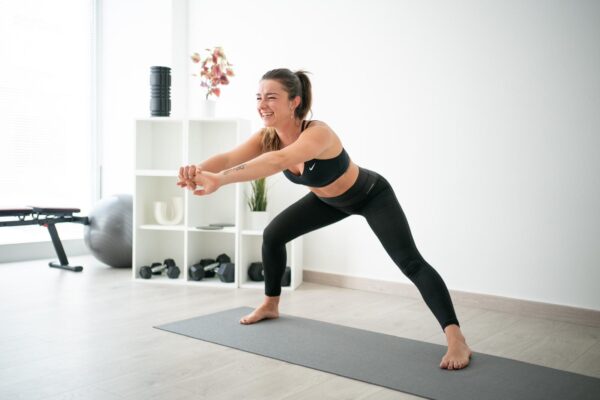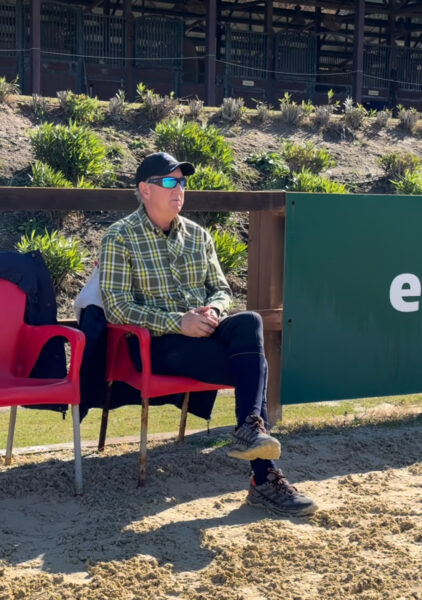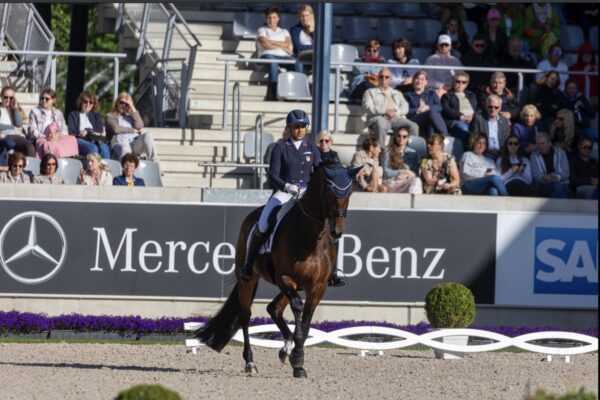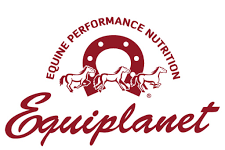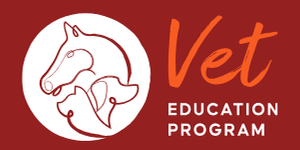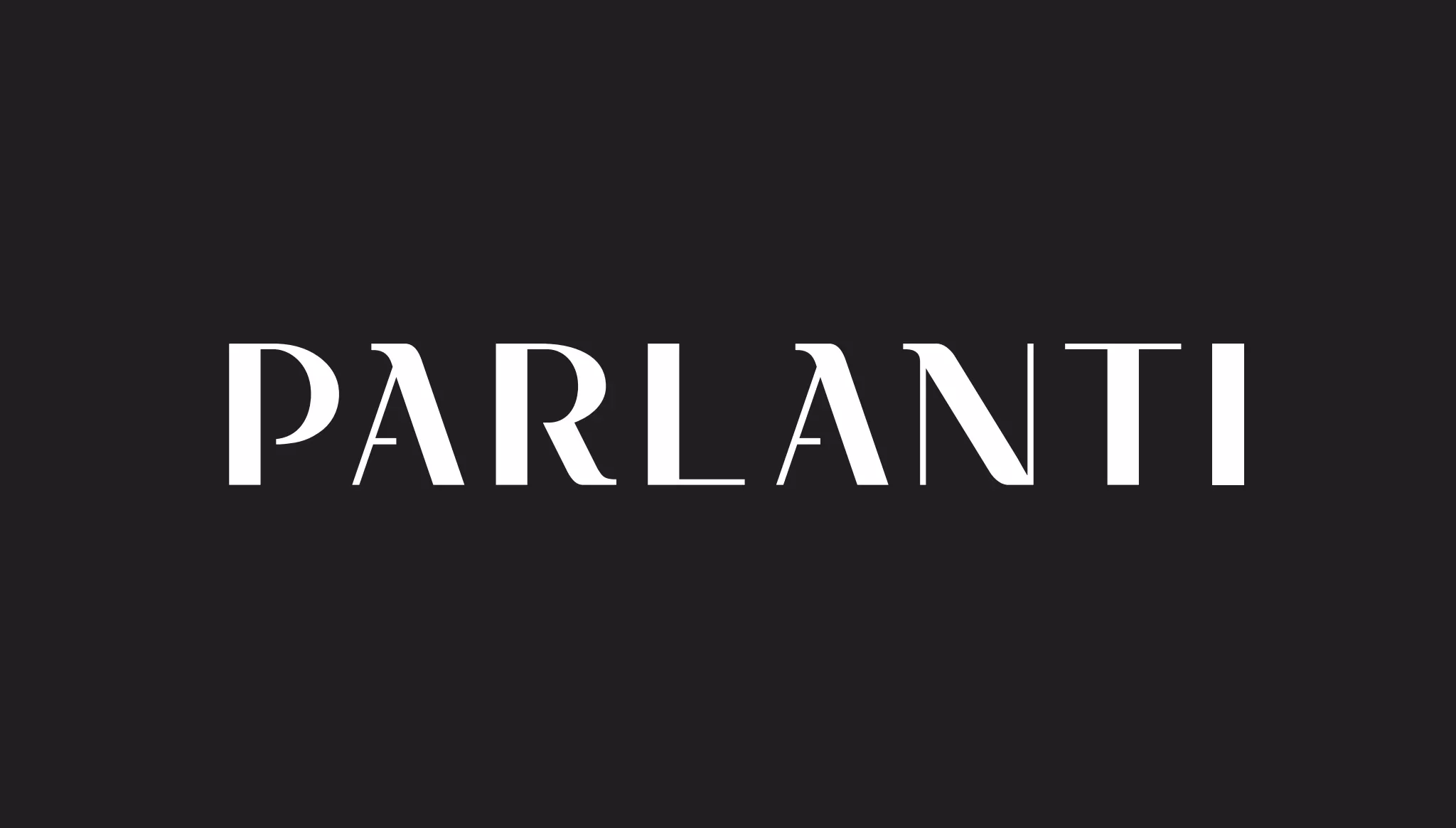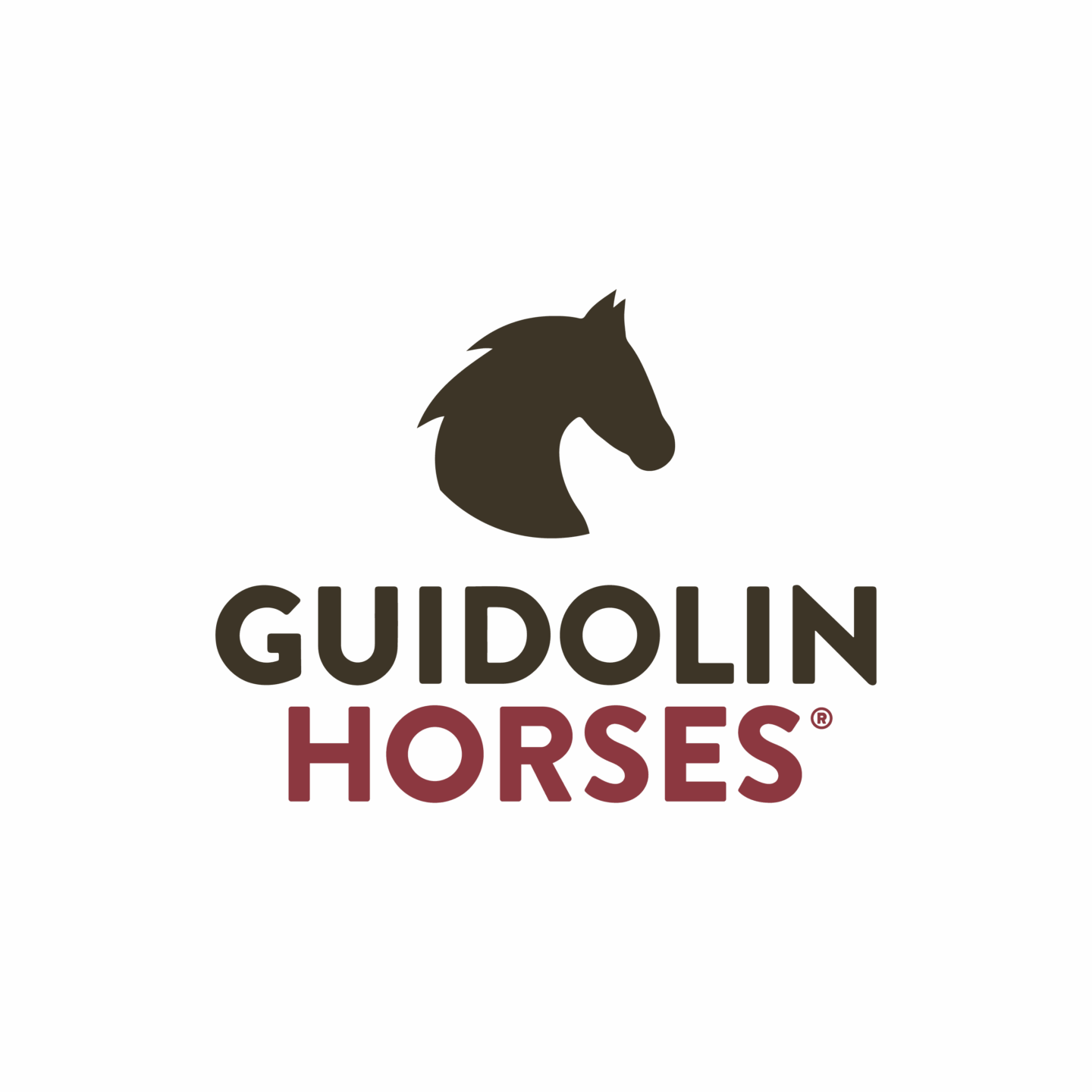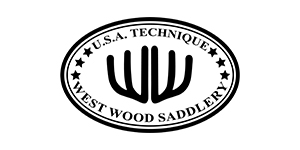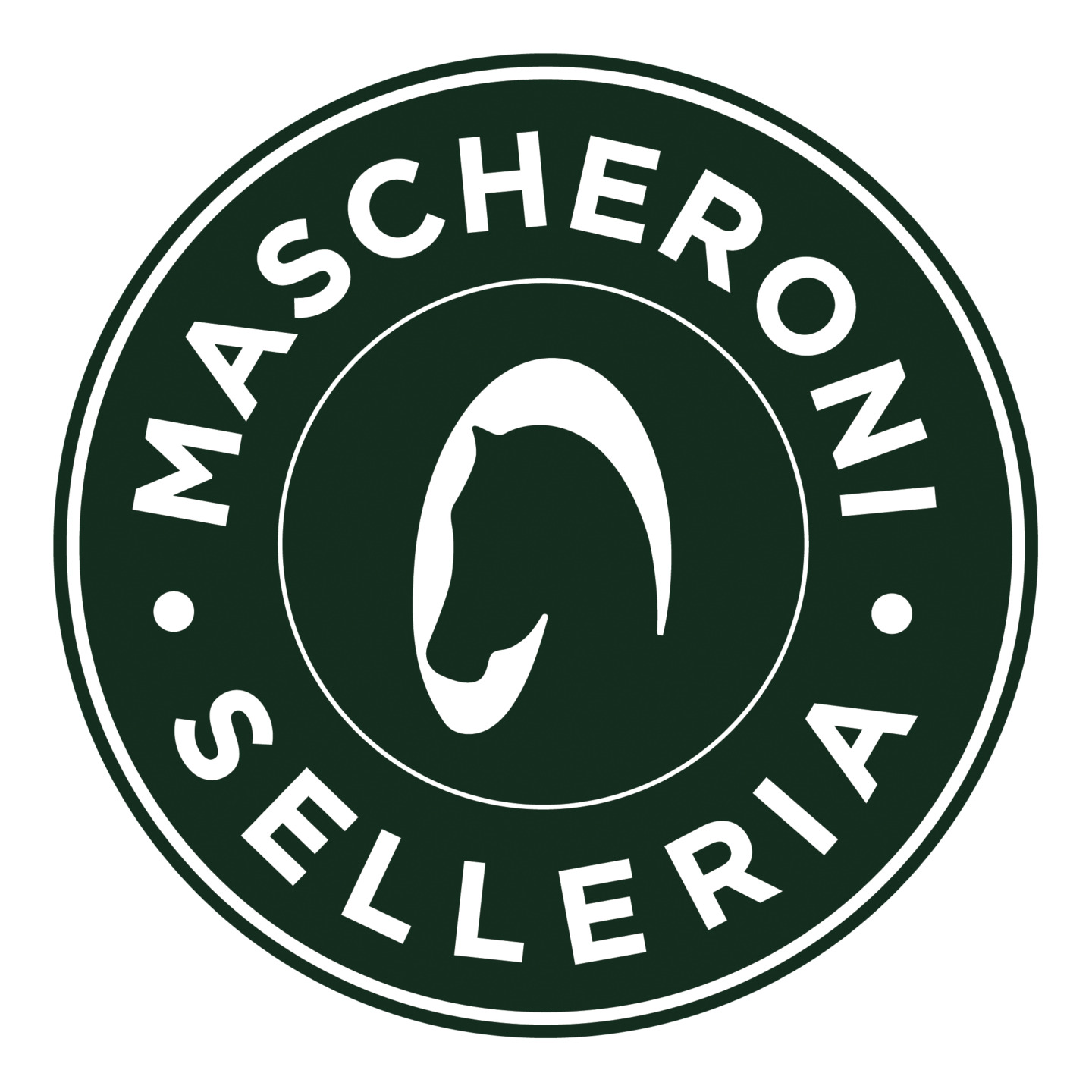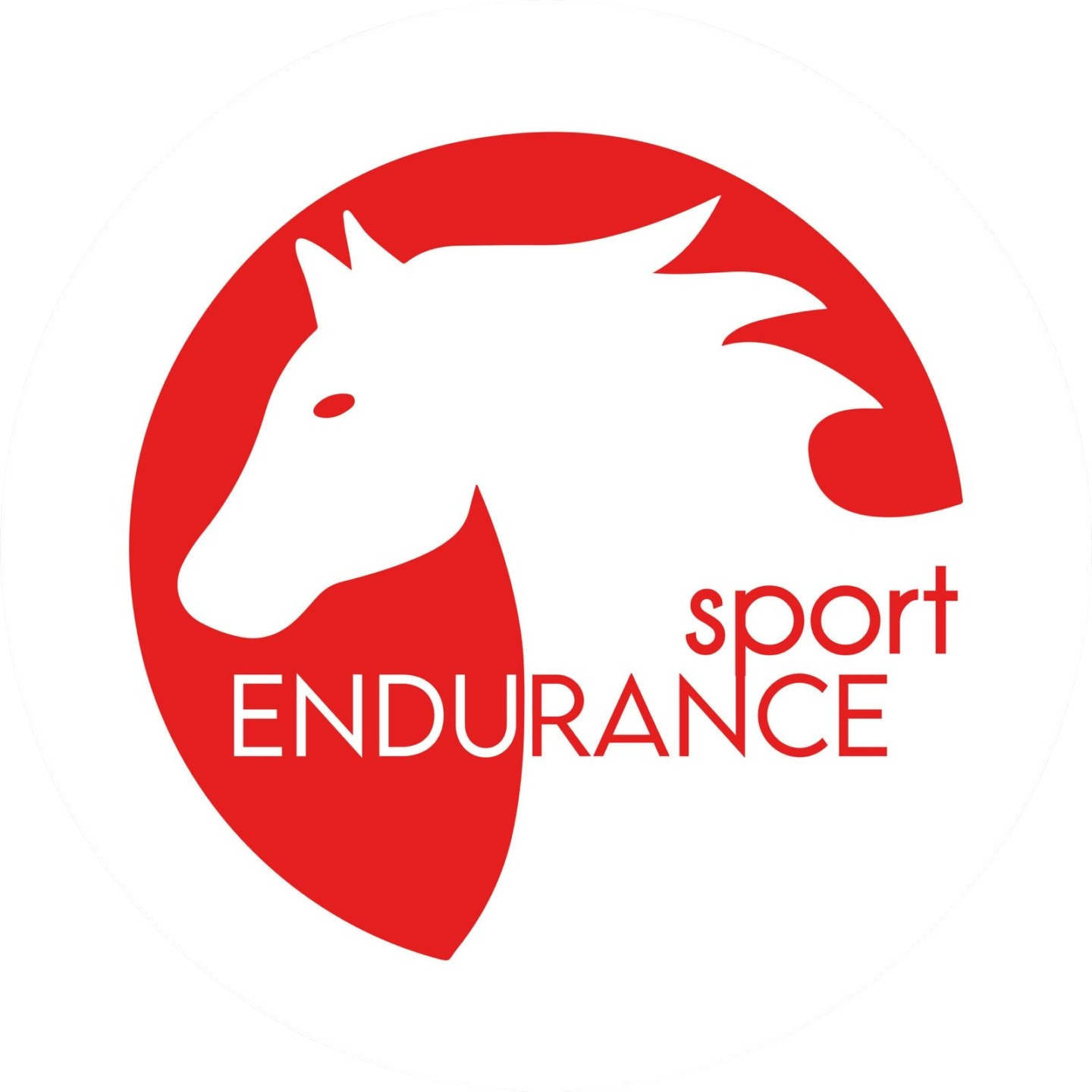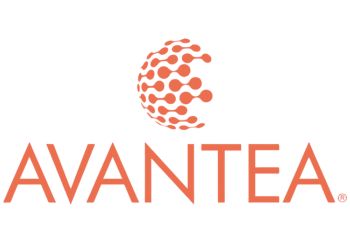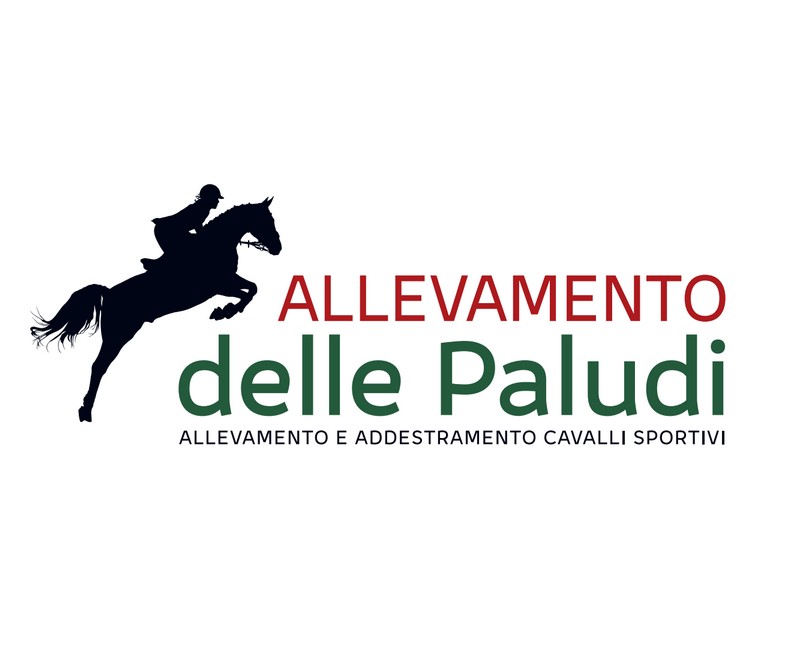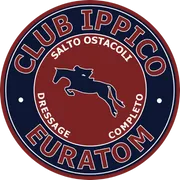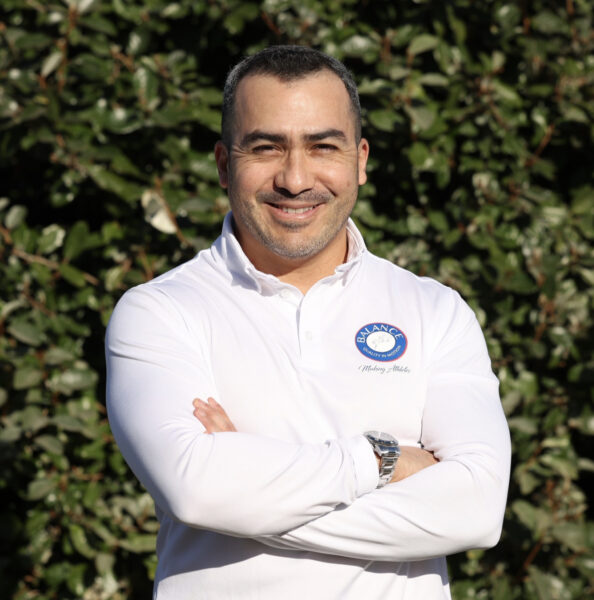
“The Rider is the Key to the Horse” – An Interview with Daniela Rahn
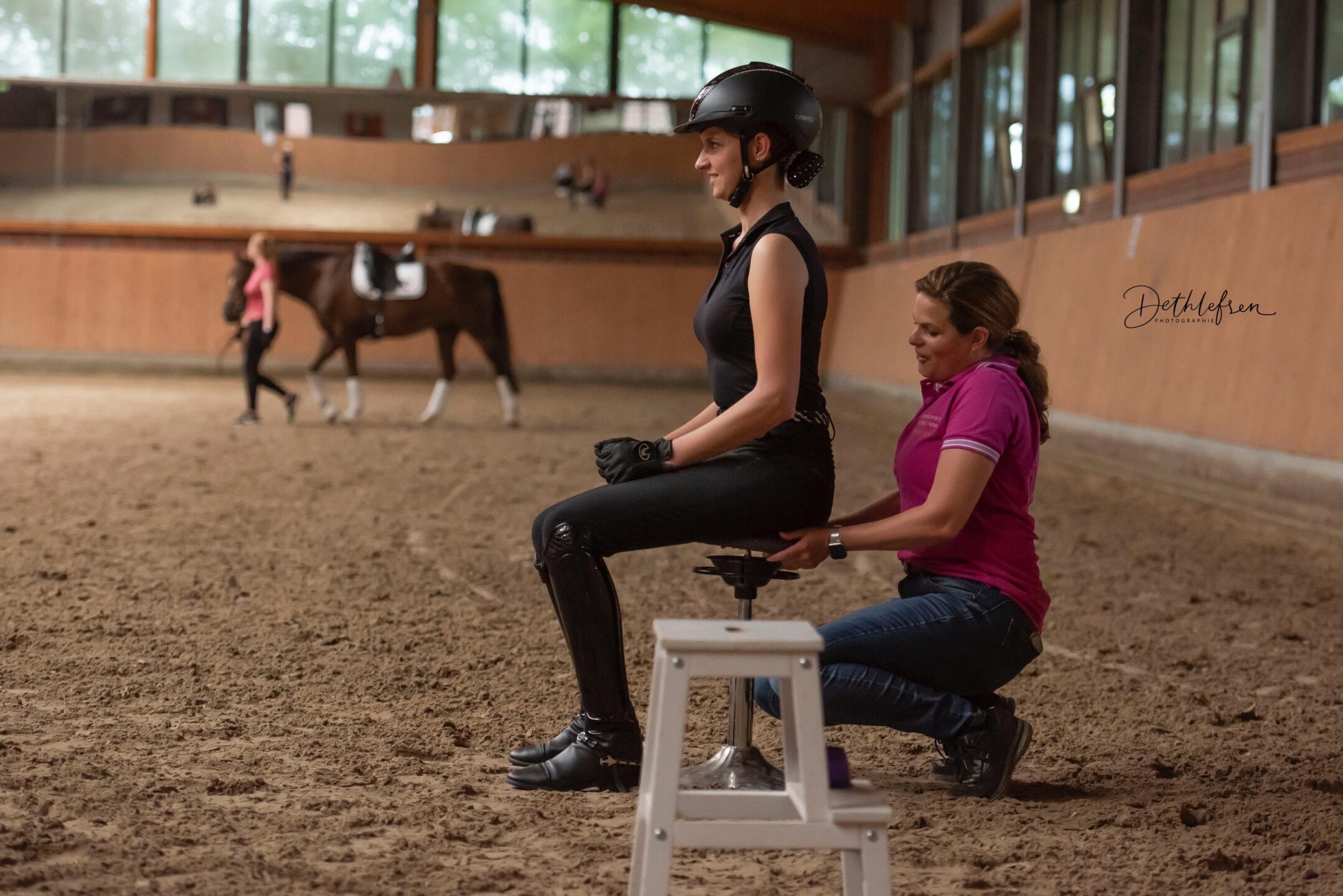
When Daniela Rahn talks about horses, you immediately feel the deep bond she has shared with them since childhood. “I got my first pony when I was four years old – and from then on horses never let me go,” she recalls. There’s a magic between her and these animals that she still can’t fully explain: “They are so incredibly empathetic and beautiful; being connected with them is a gift for me.”
As a child, nothing brought her more joy than galloping across the fields with her pony, feeling its closeness and growing up in its world. That sense of lightness, patience, and kindness that horses radiate has stayed with her to this day.
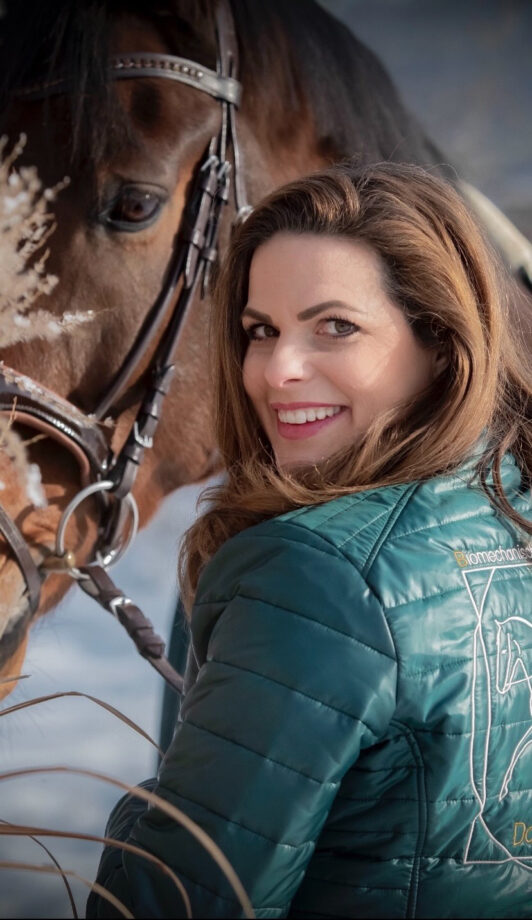
From Dressage to Biomechanics
For many years, Rahn was highly successful in dressage, training horses across different levels and working closely with renowned trainers like Jonny Hilberath. But one turning point led her to dive deeply into biomechanics and the connection between horse and rider.
She tells the story of a horse she was asked to prepare for sale: “This horse had been for sale for seven years, nobody wanted it, and I was its last chance.” Despite her skill, feel, and dedication, she could not reach the horse. “The years of pressure this horse had been exposed to had left deep scars. But I didn’t want to give up.”
That challenge became the start of a long, intense exploration. Rahn worked with veterinarians and physiotherapists, studied literature, filmed and analyzed her riding, experimented, and exchanged ideas with experienced trainers. “Without this horse, I would never have immersed myself so deeply in the biomechanics, the psyche of the horse, and the rider’s seat,” she says today.
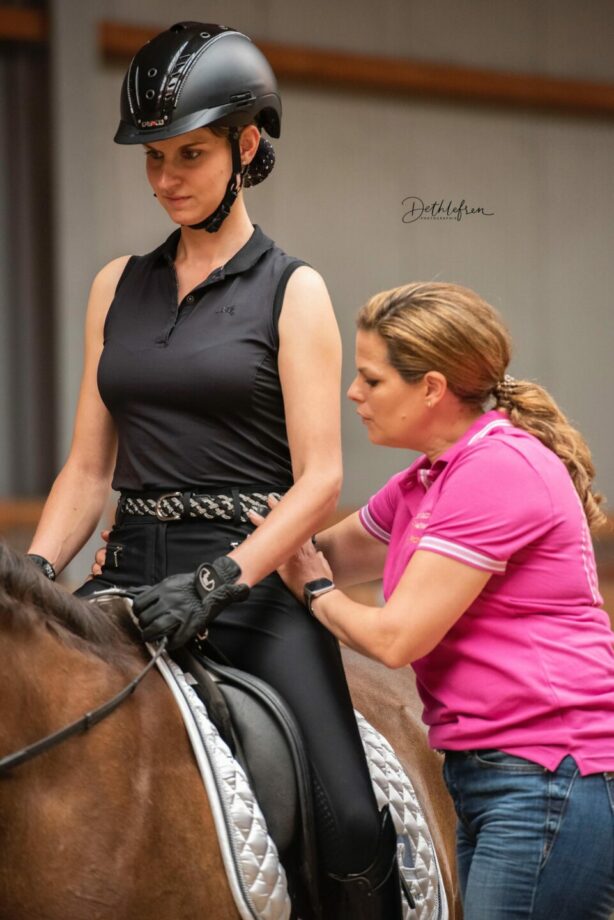
Harmony at the Core
At the heart of her work is harmony between horse and rider. “For me, harmony means that rider and horse come into alignment – physically, mentally, and emotionally. Harmony arises when the rider sits correctly, understands the horse, responds to it, and brings calmness, clarity, and sensitivity. Then the horse can unfold its potential, stay healthy, and truly enjoy working with us.”
Rahn combines her equestrian expertise with her engineering background, applying her understanding of structures, forces, and levers to her training. “If the rider doesn’t sit correctly, the horse cannot work properly in walk, trot, or canter, nor in turns, movements, or jumps. For me there is no other way: the rider is the greatest influence on the horse, and that is where the correction must begin.”
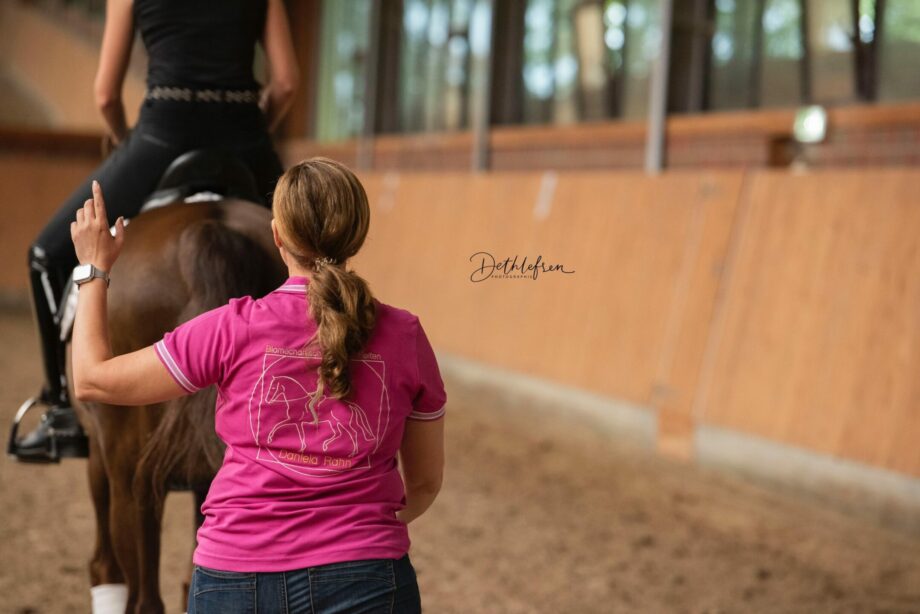
The Rider as the Key
Her teaching style differs greatly from traditional riding lessons. “Conventional training is often like a game of ‘telephone’: the trainer stands in the corner, calls out instructions, and the rider tries to follow them – without truly understanding how their body works or how their posture affects the horse.”
Rahn, on the other hand, works closely with each rider. She analyzes posture, muscle tone, balance, and mobility, studies the horse’s compensations, films the sessions, and discusses everything in detail. “I take time for each individual rider. I go into their history, their physical conditions, and their perception. Only then can real change happen.”
The results are often surprising – and emotional. “Many riders are initially shocked to see how much their individual posture and movement patterns affect their horse. But at the same time, they’re relieved when they realize: ‘It’s not just the horse – it’s me, and I can change it.’” Often, she says, there are tears of joy when long-standing problems suddenly dissolve.
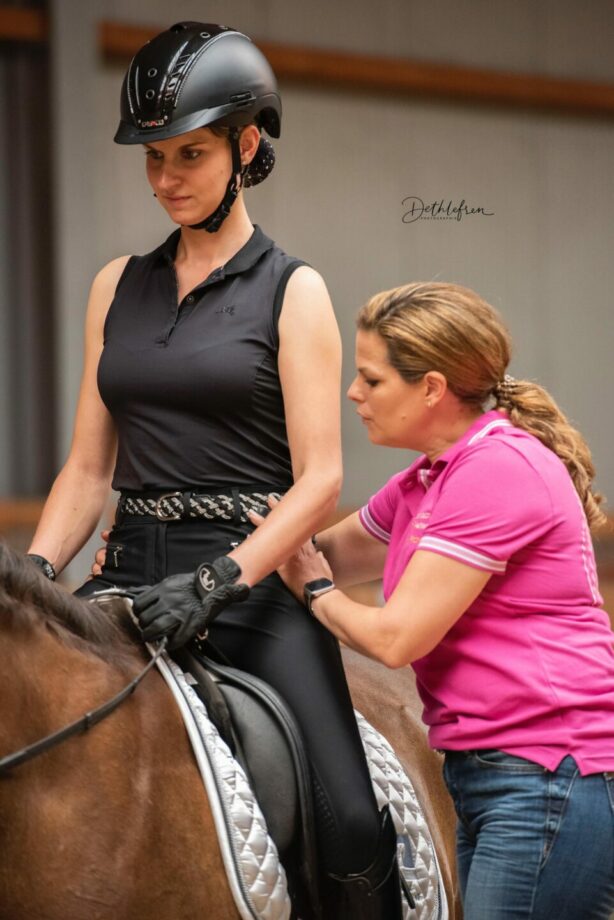
Immediate Change in the Horse
One of the most fascinating aspects of her work is how quickly horses respond. “Horses change their movement immediately. They become more relaxed, more supple, more even – blockages disappear, suppleness improves, and they suddenly appear content and radiant.”
Even small corrections in the rider’s seat can make a huge difference. The transformation is visible within the very first session. “I often set the rider back into their old seat pattern on purpose. Within seconds the horse shows compensations, becomes blocked or uncomfortable. Then, when we return to the corrected seat, the rider immediately feels the difference – the horse is looser, more supple, and more harmonious.”
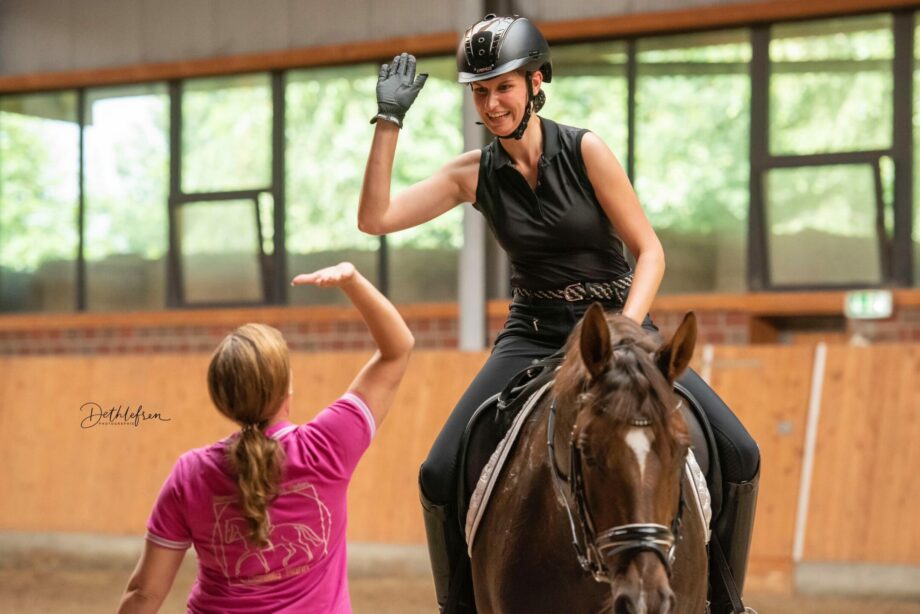
Success Stories
For Rahn, every rider who opens themselves to change is a success story. “Many people come to me because I’m their ‘last resort,’” she says. Some bring horses that appear lame under saddle but not on the lunge. Others are riders on the verge of selling their horse out of frustration. Professionals also seek her help when stuck on specific movements.
And the impact can be dramatic. She recalls a dressage rider struggling with piaffe and passage: after just two days of training, he produced his best performances ever at a World Championship the following week. Jumping riders, too, experience immediate improvements – clearer rhythm, smoother approaches, better quality in the jump, and even faster rounds.
But for Rahn, the quiet, lasting changes matter most: “When a rider notices a profound improvement after just one session, becomes more aware of their own body, and step by step develops a new feeling – those are my greatest success stories. Success doesn’t just mean sporting achievements. Success is when horse and rider find lightness, joy, and harmony together. And the greatest success of all is when the rider understands: he himself is the key to his horse.”
Valentina Sozzi – Ph courtesy of Daniela Rahn
© Rights Reserved.


